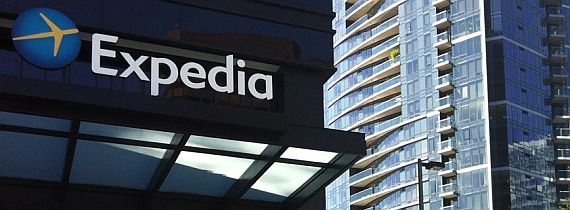
News & Stories
Southlake, Texas. Sabre Corporation has released the Sabre Labs "2018 Emerging Technology Report", its latest technology forecast focused on evolving technologies and trends that will impact travel over the next decade. The 2018 report evaluates automation, authenticity and blockchain as three major areas for consideration.
Dallas/Berlin. "If you give me an offer that I don't need or like, then it's spam, it bothers me. But if you offer me something that I want and value, then it makes my life easier and I have a better guest experience". At ITB Berlin, Clinton Anderson, President of Sabre Hospitality Solutions, explained the company's thoughts and activities around the cloud, AI and the impact it has on hoteliers' business. For example, matching a guest's shopping behavior of the past with his/her present behavior leads to a "private" story of the persona and to an increased conversion. Clinton Anderson thinks that, today, only the leading one third of the hoteliers is ready to take the next step in digitalization and personalization. Dallas-based giant Sabre is a 3.5–billion-dollar business, with Sabre Hospitality contributing 300 million dollars to it.
Paris. In May, Louvre Hotels Group will launch a new digital solution dedicated to reservations of leisure groups. The hotel chain has invested 500,000 euros to develop the state-of-the-art group booking engine and expects a high return on investment from a market worth 190 billion dollars.
Amsterdam. Over the past five years, a billion dollars has already been invested in Blockchain companies, yet the vast majority of us still do not have a clear vision of what this technology is all about and the impact it can have on businesses. The technology behind the famous Bitcoin has attracted many people's attention, including professionals in the travel industry. From Sabre to Lufthansa, Air New Zealand, Nordic Choice Hotels, Amadeus, Booking.com, TUI, but also Kempinski and citizenM, travel companies are all looking into Blockchain hoping to lower their costs, secure their transactions, facilitate payments, improve trust, and in the process, get rid of the middleman. Experts expect Blockchain to disrupt the industry, except this time, hoteliers have more to gain than to lose from disruption.
Berlin. Online bookings in the tourism industry are rising steadily. Three quarters of short trips are booked online. The majority of users access information on their smartphones. However, in Germany, classic media are still important for advertising. The background to a study, presented at the VIR Summit at the ITB.
Sierre/Siders. Growth of the online travel agents remains uninterrupted in Switzerland. Booking.com is the main beneficiary here and continues to expand its market share to the detriment of the other OTAs. In 2017, direct bookings again revealed only trivial growth.
Leipzig/Aarau. Starting a dialogue with companies will be superfluous in the future: In 2025, information exchange between customers and companies will occur over automated data transfer. Bots will gather and evaluate information for their customers, and will advise them and handle their affairs. A new study examines the dialogue between intelligent systems.
Sydney. OTAs continue to dominate the world hotel distribution according to SiteMinder's latest report which features a diverse range of both B2B and consumer channels – from OTAs to hotel websites, wholesalers and GDSs, illustrating the material impact a diversified hotel distribution strategy can have on a hotel's bottom line. Not surprisingly, Booking.com and Expedia continued to dominate the hotel distribution at a global level in 2017.
Jena. Whilst the OTA giants compete intensely amongst each other and now also have Airbnb to fear, in Germany the new booking platform stayya.de uses a cooperative model with lower commissions in an attempt to win over hoteliers.
Brussels. Hotel associations in Europe are currently carrying out the third joint online survey on the status quo of hotel distribution in Europe. The undertaking is coordinated by the European umbrella association HOTREC. All hoteliers are kindly requested to take part in the survey.



